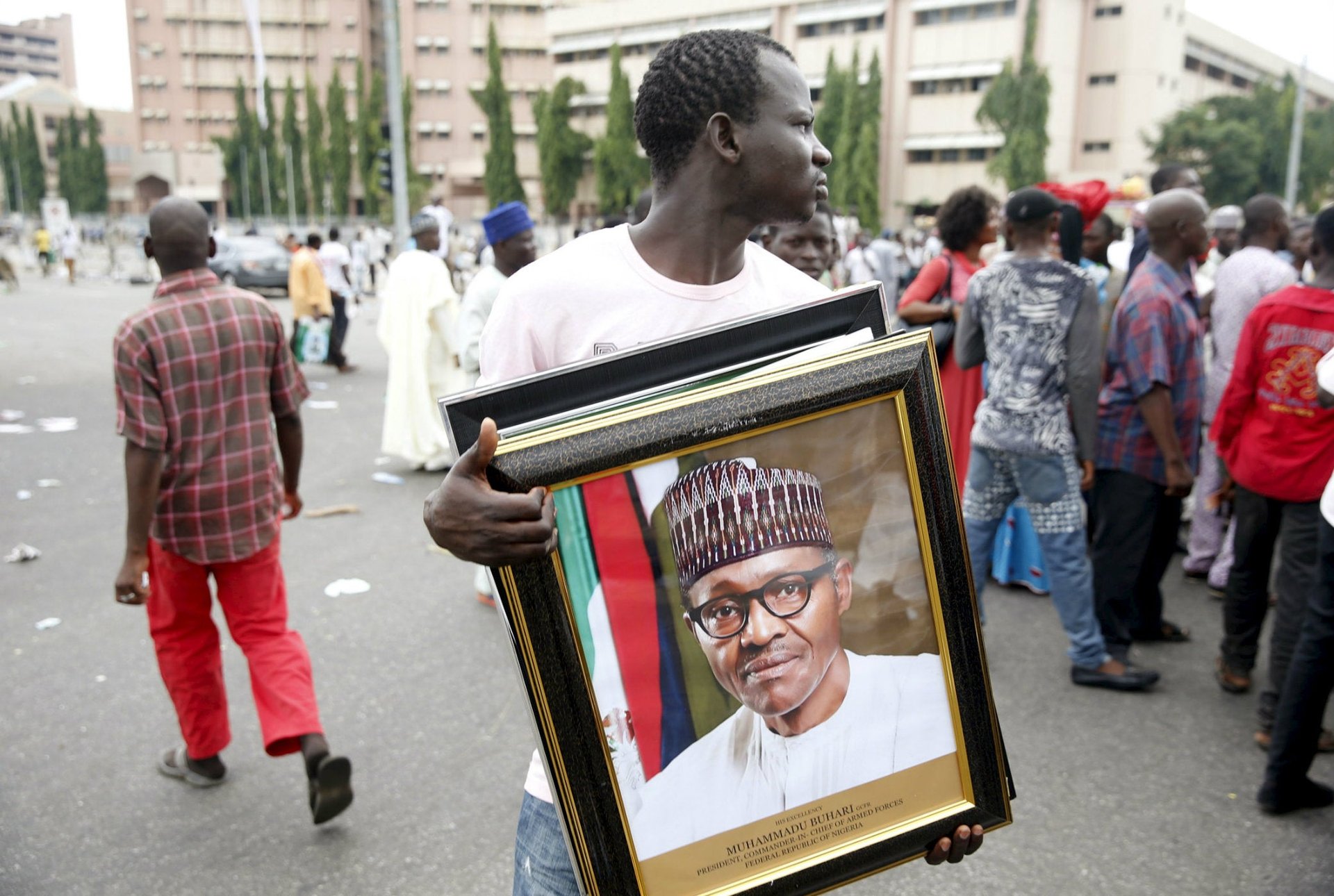Africa’s most important gathering will be dominated by a man who won’t even be there
When the World Economic Forum’s Africa summit opens in Cape Town on Wednesday, the center of attention will not be Jacob Zuma, president of the host nation, or any of the politicians, philanthropists, or business leaders among the 1,250 delegates—from 75 countries—attending the continent’s biggest business and economics gathering of the great and the good. The man on everyone’s mind will not even be there: Muhammadu Buhari, the newly sworn-in president of Nigeria.


When the World Economic Forum’s Africa summit opens in Cape Town on Wednesday, the center of attention will not be Jacob Zuma, president of the host nation, or any of the politicians, philanthropists, or business leaders among the 1,250 delegates—from 75 countries—attending the continent’s biggest business and economics gathering of the great and the good. The man on everyone’s mind will not even be there: Muhammadu Buhari, the newly sworn-in president of Nigeria.
Sure, there will be much discussion on the continent’s challenges and opportunities. There will also be much deal-making on the sidelines: business leaders say the regional WEF gatherings are more conducive to clinching deals than the annual conclave in Davos, which is better suited to higher-altitude deliberations on global issues.
But it’s a fair bet that the majority of those gathered in the Cape Town International Convention Center will have their eyes turned toward Aso Rock, the presidential palace in Abuja. As Africa’s biggest country—and, as of last year, its largest economy—Nigeria’s fate has an enormous bearing on practically everyone at the WEF event.
The question they will be asking is, can Buhari solve Nigeria’s many chronic problems? The former military dictator has barely returned to power—this time, with a popular mandate—but neither his country nor his continent can afford to give him much time to settle in. His swearing-in last week was attended by a palpable sense of expectation, mixed in with a driving urgency, across Africa.
As an economic forum, it is inevitable that much of the conversation among the WEF delegates will be about Nigeria’s economic woes—demonstrated just last week by a fuel crisis that nearly overshadowed Buhari’s investiture—and its huge opportunities. (One early test for Buhari: paying salaries to government employees.)
The departure of the his do-nothing predecessor, Goodluck Johnathan, has automatically given rise to a sense of optimism about Nigeria’s economy. Cape Town will be an opportunity to parse Buhari’s policy pronouncements and his appointments to key government positions.
But no discussion about Nigeria can long evade the topic of Boko Haram, the terrorist group that has bedeviled the country—and its neighbors—for much of the past year. Here too, Buhari has aroused optimism by reorganizing the command structure of his security forces, and pledging to step up the campaign against the terrorists. (Boko Haram has welcomed the new president with fresh violence in Maiduguri.)
But it will take more than military operations to subdue the terrorists. There are thousands of fighters in Boko Haram’s ranks, and Buhari will need to find a way to amnesty many of them, as well as find a way to reintegrate them into the very Nigerian society they have long traumatized.
How to achieve that will be the subject of a WEF panel I will be moderating, entitled, “Silencing the Gun.” Among my panelists is Hafsat Abiola-Costello, a Nigerian human-rights activist, and scion of a prominent political family. I am looking forward to her thoughts on how Buhari should deal with the challenge of militancy.
Along with Abiola-Costello, all the Nigerians attending WEF should brace themselves for lots and lots of questions about their new president, and his government. In his absence, they will be his proxies.
As for Zuma, he will not go entirely unheard. South Africa’s president is expected to participate in two WEF sessions: on how to fix the continent’s infrastructure, and how to engage its youth.